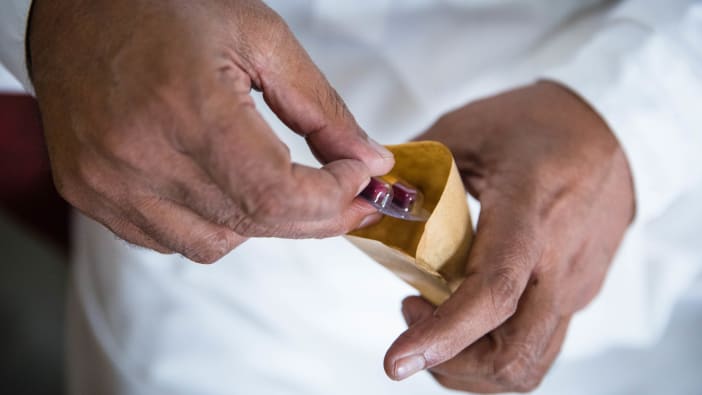Is there a biblical model for health care? Health care in many countries is delivered by professional health care workers, based in a hospital or clinic. These people are highly trained to provide specialised care to individual patients. Although such care may be effective, this approach is expensive and reaches only a limited number of people. It is often not accessible to poor people, particularly in remote rural areas, and it discourages independence and self-reliance in local communities.
A more effective, low-cost and accessible system of care is the community health model. This is based on community participation in addressing health care needs, and involves health care professionals, traditional health practitioners, and volunteers from the community. Community health promotion programmes focus on human resource development, empowerment, self-reliance and low-cost appropriate technology.
Read Matthew 9:1-35
These verses highlight some of the key features of the biblical approach to health care. Jesus lived and grew up in a poor community. He knew the local situation and understood the physical, social and spiritual needs of the community. People trusted him. He healed the paralysed, the blind and the chronically ill. But he did not just focus on people’s physical needs. He forgave people, befriended the marginalised and educated other people in a new way to respond to the physical, social and spiritual problems of the day. The way Jesus interacted with people who were sick highlights how all aspects of health – social, physical, emotional, psychological and spiritual – are linked.
Read Matthew 9:36 to 10:14 and Luke 10:1-17
These two passages show how Jesus responded to the needs of the local community and illustrate the key features of a biblical approach to health care in low-income countries.
- How did Jesus initially respond to the problems of the community? What does his emotion, and his response to the problems, show us about God’s attitude to health care?
- What are some of the other characteristics of the biblical approach and how do they compare to those of the hospital-based and community-based models?
- What can we learn from these passages about how to respond to health needs in our own communities?
- In addition to the many health problems, Jesus noted another need: ‘The harvest is plentiful but the workers are few.’ (Matthew 9:37). The shortage of trained health workers is a present global problem. How did Jesus recruit and equip people to help him?
- What gaps or challenges do you face in implementing a biblical approach to health care in your community? What measures can be taken to address these?
Dr Robert Yee is Director of Oral Health for Dentaid.
Dentaid, Giles Lane, Landford, Salisbury, SP5 2BG, UK
Email: [email protected]
Website: www.dentaid.org









